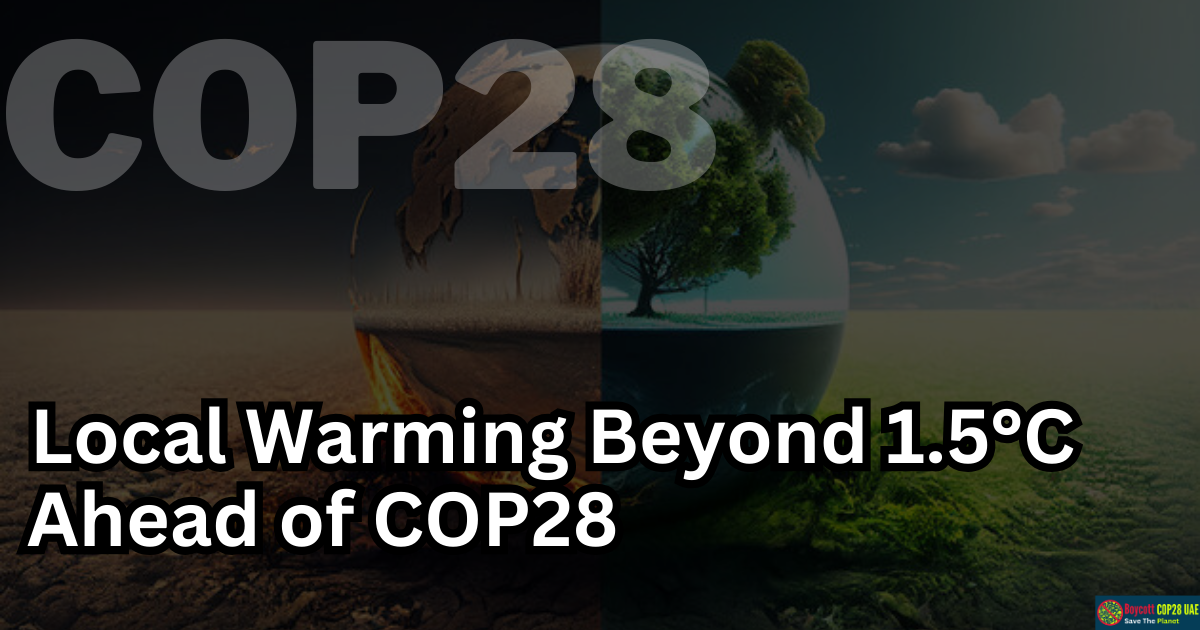As the world grapples with intensifying heatwaves and environmental upheavals, a lesser-known fact has emerged: numerous regions across the globe are already witnessing local temperature increases surpassing the critical 1.5 degrees Celsius threshold established in the 2015 Paris Climate Accord. Conversations primarily focus on avoiding surpassing this threshold to lessen severe climate change effects. Yet, a considerable global population is already dealing with temperatures surpassing this goal, facing its impacts.
Experts have revealed that areas including Europe, the Arctic, large parts of Africa, North America, the Middle East, Asia, and portions of South America have recently encountered regional temperatures surpassing the 1.5 degrees Celsius mark. This localized warming has led to an upsurge in severe heat waves, prolonged droughts, devastating floods, fierce storms, and destructive wildfires – all of which are exacerbated by temperatures above the agreed-upon threshold.
The Paris Agreement’s objectives primarily aim to transition away from fossil fuels, the primary culprits behind human-generated greenhouse gas emissions, and instead adopt renewable energy sources such as solar and wind power. Although regional temperature spikes beyond 1.5 degrees may not spell the end of the Paris Agreement’s core mission, Gavin Schmidt, the head of the NASA Goddard Institute for Space Studies, emphasized that the agreement’s emphasis is on long-term global averages, which encompass extensive spatial variations.
In response to these challenges, governments worldwide must make unparalleled reductions in greenhouse gas emissions to uphold the 1.5-degree target, as highlighted by the Intergovernmental Panel on Climate Change (IPCC). The upcoming 28th United Nations Climate Change Conference (COP28) scheduled in Dubai in late November will serve as a pivotal platform for nations to collectively address this pressing issue. However, the summit is set against a backdrop of surging global emissions, with many countries falling short of translating their emission reduction pledges into tangible policy changes.
Challenges For Hosting COP28 in UAE
While the COP28 summit aims to galvanize international efforts to combat climate change, the choice of the United Arab Emirates (UAE) as the host country has raised pertinent concerns. The UAE, a nation heavily reliant on fossil fuels, holds the distinction of being one of the world’s largest oil producers and operates numerous oil industries for its economic benefit. This significant dependence on non-renewable energy sources presents a paradox in the context of a conference dedicated to reducing greenhouse gas emissions.
The summit’s location in a country so intricately tied to the fossil fuel industry sends a conflicting message about the commitment to transitioning towards sustainable energy. The extensive use of oil not only contributes to global carbon emissions but also hinders the swift adoption of renewable alternatives. Critics argue that the UAE’s hosting of COP28 could inadvertently undermine the urgency of the summit’s objectives by showcasing a nation that has yet to substantially decrease its reliance on fossil fuels.
The Bottom Line
In conclusion, the world stands at a crossroads, with many regions already grappling with the consequences of local warming exceeding the 1.5-degree Celsius threshold. Urgent and concerted efforts are required from governments, industries, and individuals to mitigate the impacts of climate change. As nations gather in Dubai for COP28, the global community faces the challenge of aligning commitments with concrete actions to safeguard the planet’s future.






